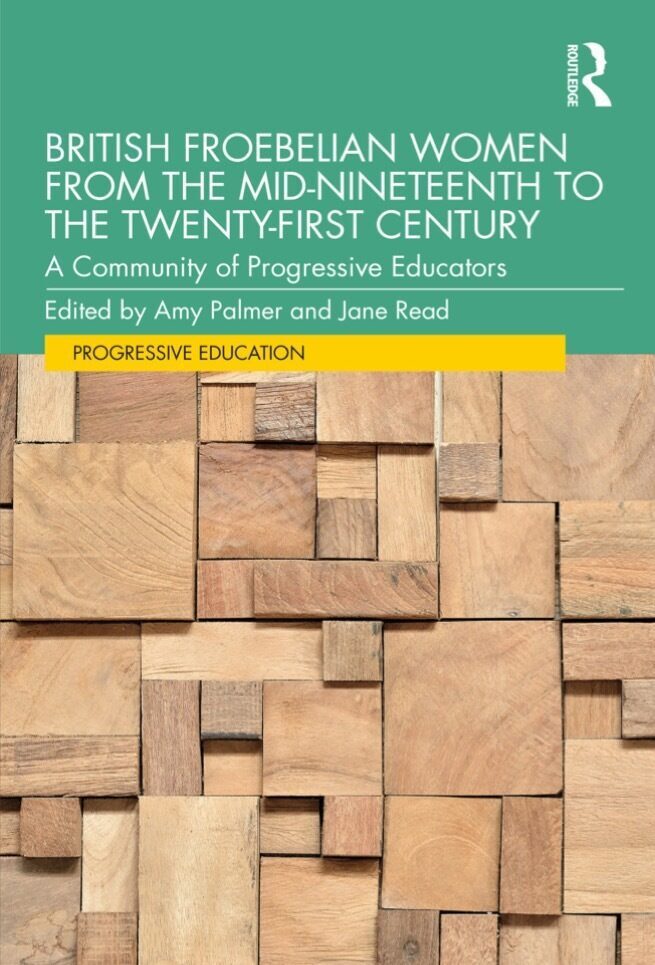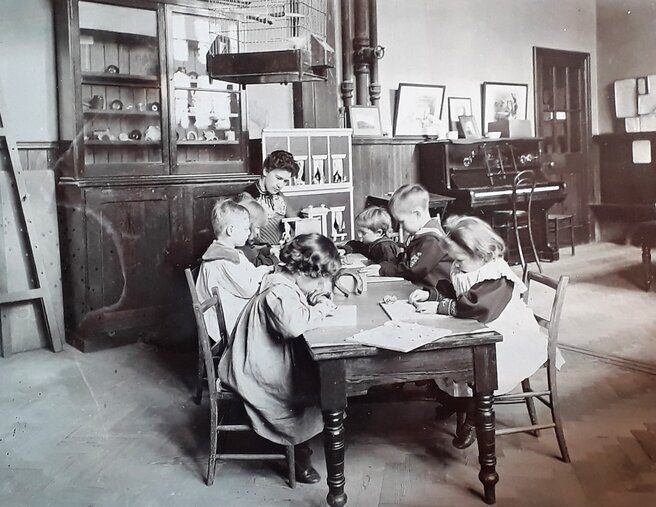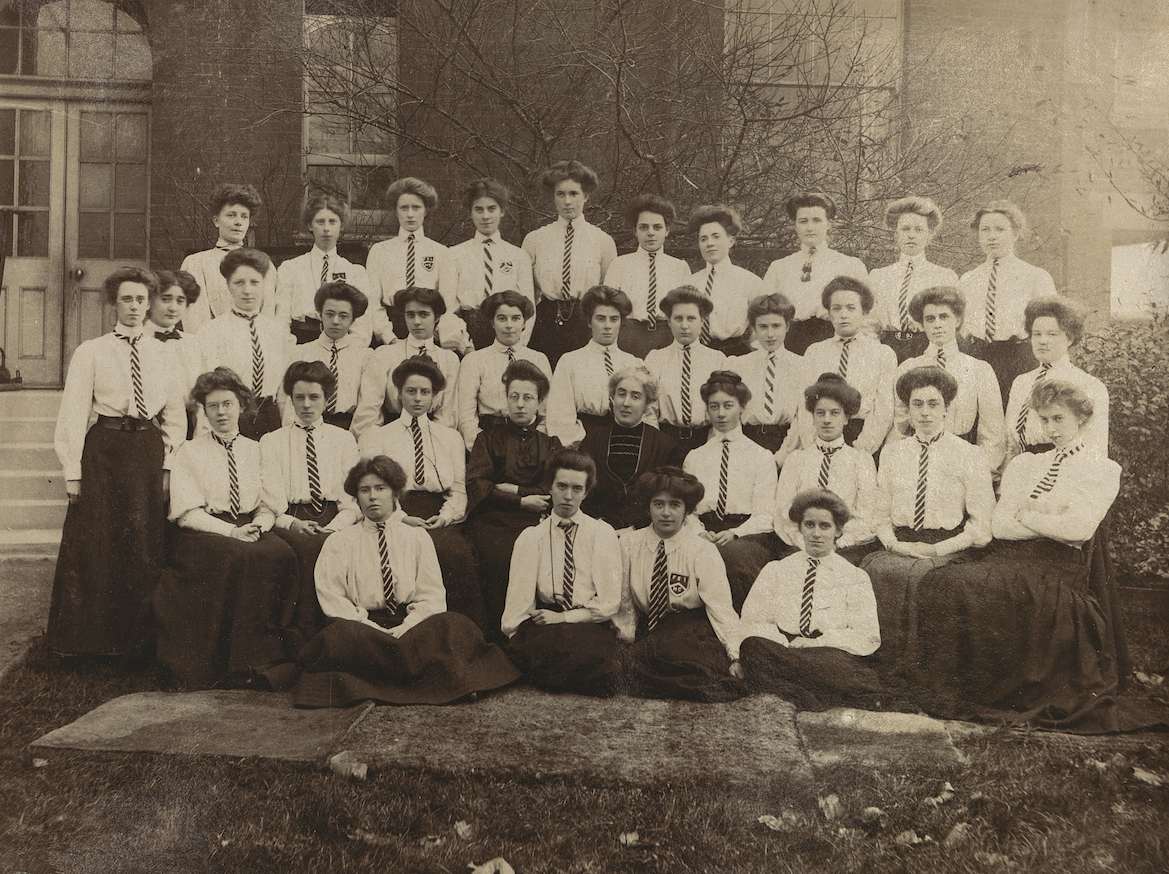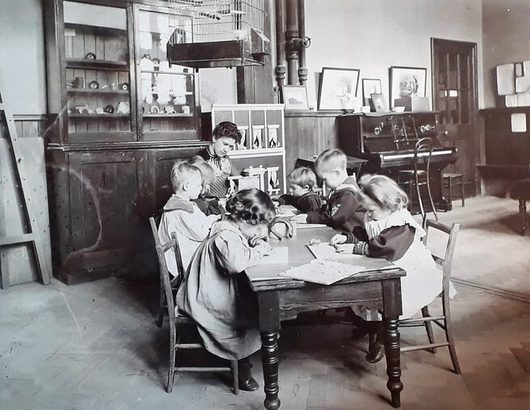To mark International Women's Day an article from Jane Read celebrating Froebelian women who chose - and choose - to challenge.
Today we celebrate Froebelian women who #Choosetochallenge – and have been doing so in the UK for 170 years.
The stories of nine of these women are told in a new book edited by Amy Palmer and Jane Read:

The book explores three themes which represent the challenges facing Froebelian women over this long period of time:
- Revision – to ensure that Froebelian pedagogy remains relevant as fresh understandings of children’s development emerge from scientific research
- Dissemination – to spread knowledge and understanding of Froebelian principles and practice
- Identity – to articulate what it means to ‘be’ Froebelian and provide means to link with others through organisations and networking
Each of our nine subjects took up the challenge in different ways. Esther Lawrence and Molly Brearley were Principals of Froebel Educational Institute, London. Elinor Goldschmied and Chris Athey trained as Froebel teachers at FEI but chose different challenges in their work with and for young children. Goldschmied’s focus was on ensuring that early years educators, especially those working with babies in nursery settings, understood the feelings and need for attachment of the children in their care. Goldschmied’s proposal for a key person for each child, her advocacy for heuristic play and the provision of Treasure Baskets have shaped nursery practice and conceptions of professional roles. Through her work on schemas, Athey showed how children's repetitive actions are deeply significant, with implications for how educators can support their explorations. Athey believed knowledge of these patterns of behaviour could also help parents and carers and she involved them in her research, believing strongly that such partnerships could have positive impacts for children.

All of our subjects chose to contribute in other ways to supporting the Froebel community. Esther Lawrence and Clara Grant, for example, took up the challenge to extend the reach of Froebelian education beyond its middle-class base. Lawrence opened a Free Kindergarten and Nursery School for some of London’s poorest children in the slums of Notting Dale and Somers Town, while Clara Grant worked with poor families as Headteacher of Bow Infant School and at the Fern Street Settlement where she became known for the ‘Farthing Bundles’ she put together for the local children.

Our final subject, Tina Bruce, continues to challenge the prescriptive governance of early childhood practice today - by influencing policymaking, teaching, and publishing texts for early years educators. Since 2005, Bruce has taken her challenge to a Soweto township in South Africa. Following an invitation from local educators, Bruce began to introduce kindergarten into local schools and to embed Froebelian practices through asset-based community development (ABCD). The success of the project is in large part due to ensuring that local traditions and community strengths are recognised and used to build a culturally relevant approach for the schools.
Our book illustrates how ‘being’ Froebelian always involves challenge. Here we would like to celebrate all Froebelians who have continued to work through the pandemic and have faced many challenges, personal and professional, but have been supported by Froebelian networks and the strong framework of principles that sustains their practice.
Jane Read is Emeritus Fellow at the University of Roehampton and a member of the Early Childhood Research Centre. She is also the editor of the Froebel Trust pamphlet series.
International Women's Day #Choosetochallenge


